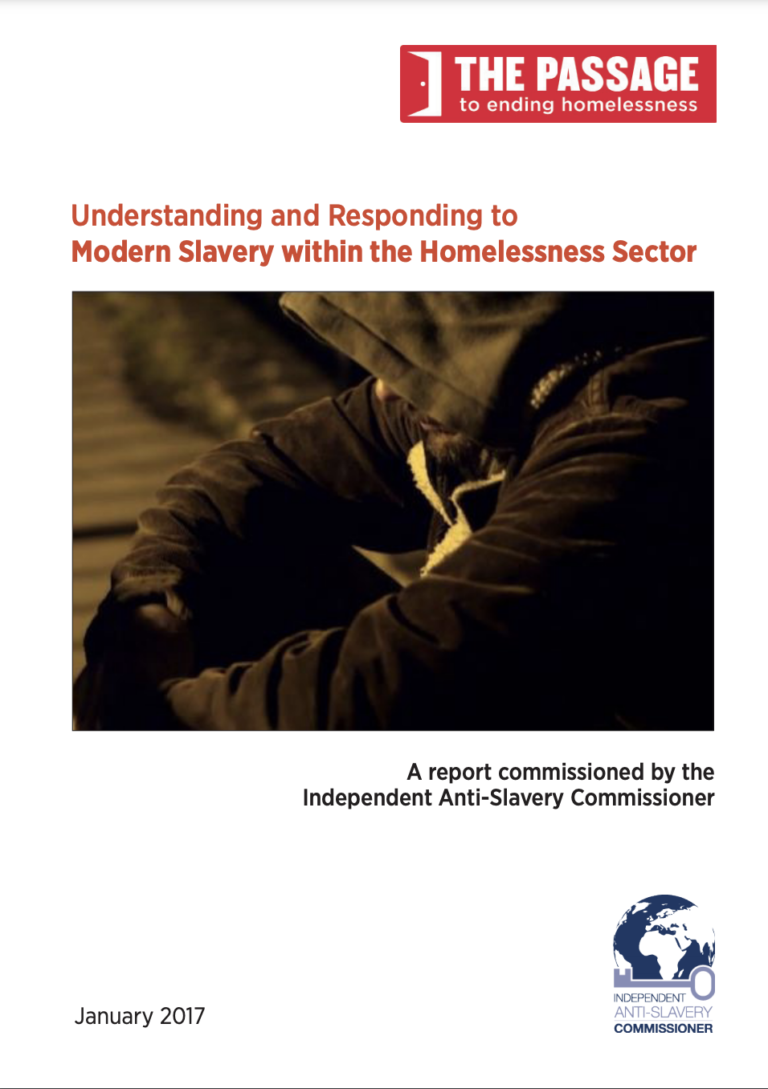Modern Slavery Handbook
We believe that everyone should read this handbook – and we have kept it small so that you can keep it in your work bag or desk drawer. This handbook was, however, specifically created for staff who work in the...
Homelessness organisations and anti-slavery organisations have both been aware of links between modern slavery and homelessness, yet there has been little research into how these issues overlap and impact on one another. An initial scoping exercise was, therefore, commissioned in 2016 by the UK’s Independent Anti-Slavery Commissioner, Kevin Hyland OBE, to gain a better understanding of modern slavery within the homelessness sector. The Passage, a leading homelessness charity, was appointed to look into this issue.
Using an online survey completed by 61 organisations throughout England, two focus groups in Birmingham and London, and semi-structured interviews with various other relevant organisations, it has been found that homeless people are at risk of being exploited when they are on the streets, and victims of modern slavery are at risk of becoming homeless if no long term support is provided to them. A set of recommendations has been developed to address some of the issues identified through this exercise in order to improve the multi-agency response to modern slavery.

We believe that everyone should read this handbook – and we have kept it small so that you can keep it in your work bag or desk drawer. This handbook was, however, specifically created for staff who work in the...
This handbook was specifically created for staff who work in the homelessness sector, particularly frontline workers, managers and volunteers. People who are engaged in support services for homeless people can be vital eyes and ears in detecting this crime. In...
This report depicts The Passage Anti-Slavery Project’s first two years, from June 2018 to June 2020. The first section of the report describes the project’s objectives, the steering group which guided the project and its main key achievements. The achievements...
The data in this report represents signals and cases from January 1, 2017 through December 31, 2017 and is accurate as of July 11, 2018. Cases of trafficking may be ongoing or new information may be revealed to the National Hotline over time. Conseq...Read More
In October 2003, Congress passed a law allowing trafficking victims to recover civil damages from their traffickers in federal courts, 18 U.S.C. § 1595, now known as the Trafficking Victims Protection Reauthorization Act (TVPRA). In the almost twen...Read More
The first full version of the Corporate Human Rights Benchmark is out. The results are revealing; there is a race to the top in business and human rights performance, but this is only amongst a welcome cluster of leaders while the great majorit...Read More
Doing business in occupied territories carries with it risks, dilemmas and potential liabilities for companies. The sources of information available to companies to address these risks are limited. This briefing is intended to provide companies with...Read More